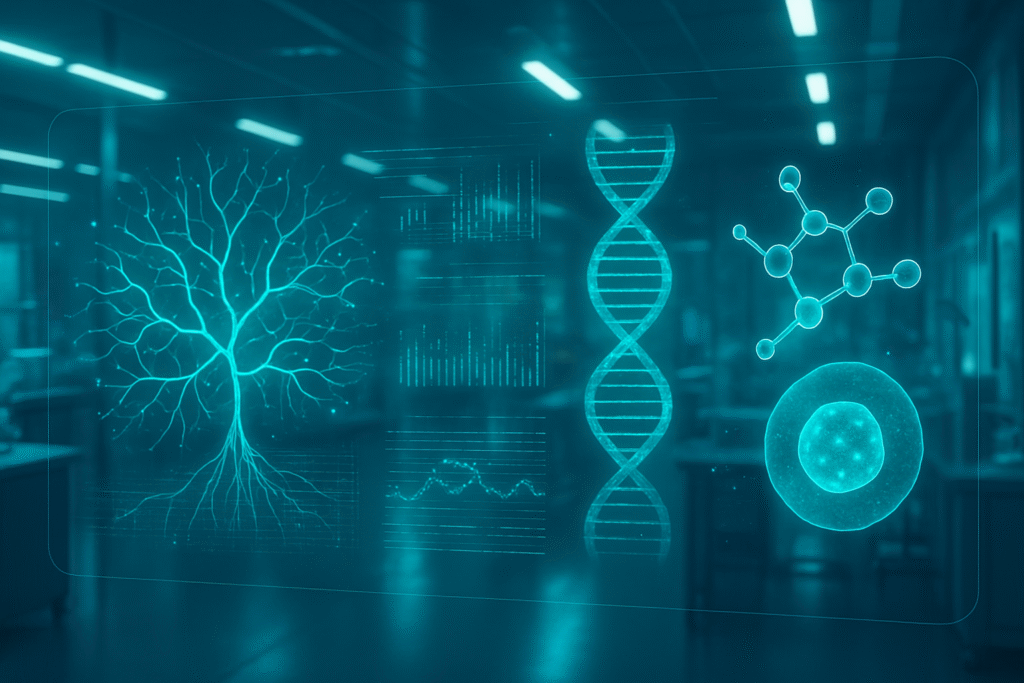
The pharmaceutical industry is on the cusp of a profound transformation, driven by the accelerating integration of Artificial Intelligence (AI). Projections indicate that the global AI in pharmaceutical market is set to explode, reaching an astounding valuation of over $65 billion by 2033. This represents not merely a significant market expansion but a fundamental shift in how drugs are discovered, developed, and delivered, heralding an era of unprecedented efficiency and personalized care.
This projected growth underscores a critical turning point where advanced computational power and sophisticated algorithms are becoming indispensable tools in the fight against disease. The promise of AI to drastically cut down the time and cost associated with drug development, coupled with its ability to unlock novel therapeutic pathways, is attracting massive investment and fostering groundbreaking collaborations across the life sciences and technology sectors.
The Algorithmic Engine Driving Pharmaceutical Innovation
The journey to a $65 billion market is paved with remarkable technical advancements and strategic applications of AI across the entire pharmaceutical value chain. At its core, AI is revolutionizing drug discovery and design. Deep learning models and Generative Adversarial Networks (GANs) are now capable of de novo designing drug molecules, generating optimized molecular structures, and predicting novel compounds with specific pharmacological and safety profiles. This is a significant departure from traditional high-throughput screening methods, which are often time-consuming and resource-intensive, yielding a high failure rate. Companies like Exscientia, with its Centaur Chemist platform, have already demonstrated the ability to rapidly progress AI-designed cancer drugs into clinical trials, showcasing the speed and precision that AI brings. Insilico Medicine, another leader, leverages its Pharma.AI platform for end-to-end drug discovery, particularly focusing on aging research with a robust pipeline.
Beyond initial discovery, AI's technical capabilities extend deeply into preclinical testing, clinical trials, and even manufacturing. Machine learning (ML) algorithms analyze complex datasets to identify molecular properties, predict drug-target interactions, and determine optimal dosages with greater accuracy than ever before. Natural Language Processing (NLP) and Large Language Models (LLMs) are sifting through vast biomedical literature, clinical trial records, and omics data to uncover hidden connections between existing drugs and new disease indications, accelerating drug repurposing efforts. This differs from previous approaches by moving from hypothesis-driven research to data-driven discovery, where AI can identify patterns and insights that human researchers might miss. The AI research community and industry experts have reacted with a mix of excitement and cautious optimism, recognizing the immense potential while also acknowledging the need for robust validation and ethical considerations. The development of "Lab in a Loop" systems, integrating generative AI directly into iterative design and testing cycles, exemplifies the cutting-edge of this integration, promising to further compress development timelines.
Reshaping the Competitive Landscape: Winners and Disruptors
The surge in AI adoption within pharmaceuticals is profoundly reshaping the competitive landscape, creating immense opportunities for both established tech giants and nimble AI-first biotech startups, while posing potential disruptions for those slow to adapt. Companies specializing in AI-driven drug discovery, such as BenevolentAI, which integrates vast biomedical datasets with AI to accelerate drug discovery through its Knowledge Graph, and Recursion Pharmaceuticals, which industrializes drug discovery via an AI-enabled human biology map, stand to benefit immensely. Atomwise Inc., a pioneer in AI-driven small molecule discovery with its AtomNet platform, is also positioned for significant growth.
Major pharmaceutical companies are not merely observing this trend; they are actively engaging through strategic partnerships, acquisitions, and substantial internal investments. Pfizer (NYSE: PFE), for instance, has partnered with IBM Watson (NYSE: IBM) for drug discovery in immuno-oncology and integrates AI into its clinical trials. Sanofi (NASDAQ: SNY) has invested in the plai platform with Aily Labs and collaborated with Insilico Medicine. Novartis (NYSE: NVS) is extensively using AI across its projects, collaborating with tech titans like Microsoft and NVIDIA (NASDAQ: NVDA). These collaborations highlight a symbiotic relationship where pharma giants provide domain expertise and resources, while AI startups bring cutting-edge computational power. The competitive implications are clear: companies that effectively integrate AI will gain significant strategic advantages in speed to market, cost efficiency, and the ability to tackle previously intractable diseases. This could disrupt traditional R&D models, making drug development more agile and less reliant on lengthy, expensive empirical testing.
Broader Implications and Societal Impact
The projected growth of AI in the pharmaceutical industry to over $65 billion by 2033 is a pivotal development within the broader AI landscape, aligning with the trend of AI permeating critical sectors. This integration fits into the larger narrative of AI moving from theoretical research to practical, high-impact applications. The implications are far-reaching: from accelerating the discovery of treatments for rare diseases to making personalized medicine a widespread reality. AI's ability to analyze genomic, proteomic, and clinical data at scale promises therapies tailored to individual patient profiles, minimizing adverse effects and maximizing efficacy.
However, this transformative potential is not without its concerns. Ethical considerations surrounding data privacy, algorithmic bias in patient selection or drug design, and the transparency of AI decision-making processes are paramount. Regulatory frameworks will need to evolve rapidly to keep pace with these technological advancements, ensuring patient safety and equitable access. Compared to previous AI milestones, such as DeepMind's AlphaFold's breakthrough in protein structure prediction, the current phase in pharma represents the critical transition from foundational scientific discovery to direct clinical and commercial application. The impact on public health could be monumental, leading to a significant reduction in healthcare costs due to more efficient drug development and more effective treatments, ultimately improving global health outcomes.
The Horizon: Future Developments and Uncharted Territories
Looking ahead, the next decade promises even more sophisticated applications and integrations of AI in pharmaceuticals. Near-term developments are expected to focus on refining existing AI platforms for greater accuracy and speed, particularly in areas like de novo molecular design and predictive toxicology. The increasing use of generative AI for designing not just molecules, but entire biological systems or therapeutic modalities, is on the horizon. Long-term, experts predict the emergence of fully autonomous "AI labs" capable of conducting iterative cycles of design, synthesis, and testing with minimal human intervention, further accelerating the pace of discovery.
Potential applications on the horizon include AI-driven smart manufacturing facilities that can adapt production based on real-time demand and supply chain dynamics, and advanced pharmacovigilance systems capable of predicting adverse drug reactions before they occur. Challenges that need to be addressed include the integration of disparate data sources, the development of explainable AI models to build trust among clinicians and regulators, and overcoming the high computational demands of complex AI algorithms. Experts predict a future where AI is not just an assistant but a co-creator in drug development, leading to a continuous pipeline of innovative therapies and a fundamental shift in how healthcare is delivered.
A New Chapter in Medical History
The projected growth of the AI in pharmaceutical market to over $65 billion by 2033 is more than a financial forecast; it marks the beginning of a new chapter in medical history. The key takeaways are clear: AI is poised to dramatically reduce the time and cost of bringing new drugs to market, enable truly personalized medicine, and fundamentally reshape the competitive dynamics of the pharmaceutical industry. This development's significance in AI history lies in its demonstration of AI's capability to tackle some of humanity's most complex and critical challenges—those related to health and disease—with unprecedented efficacy.
As we move forward, the long-term impact will be measured not just in market value, but in lives saved, diseases cured, and the overall improvement of human well-being. What to watch for in the coming weeks and months are continued announcements of strategic partnerships, breakthroughs in AI-designed drug candidates entering later-stage clinical trials, and the evolution of regulatory guidelines to accommodate these transformative technologies. The fusion of AI and pharmaceuticals is set to redefine the boundaries of what is possible in medicine, promising a healthier future for all.
This content is intended for informational purposes only and represents analysis of current AI developments.
TokenRing AI delivers enterprise-grade solutions for multi-agent AI workflow orchestration, AI-powered development tools, and seamless remote collaboration platforms. For more information, visit https://www.tokenring.ai/.






